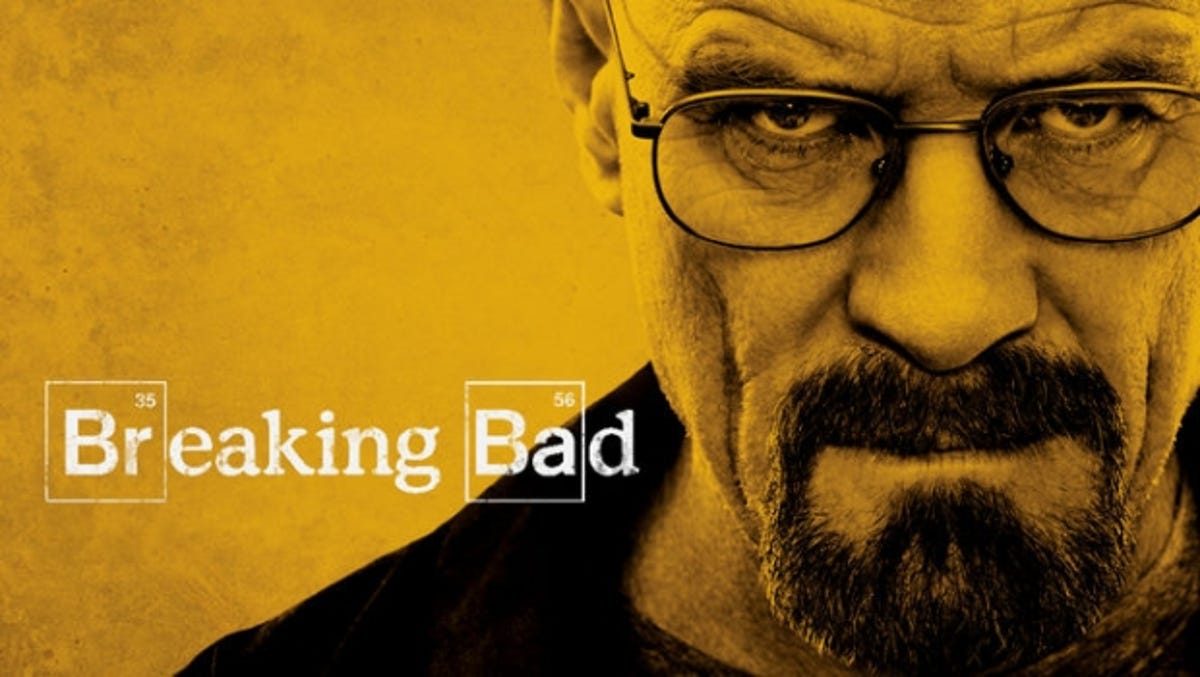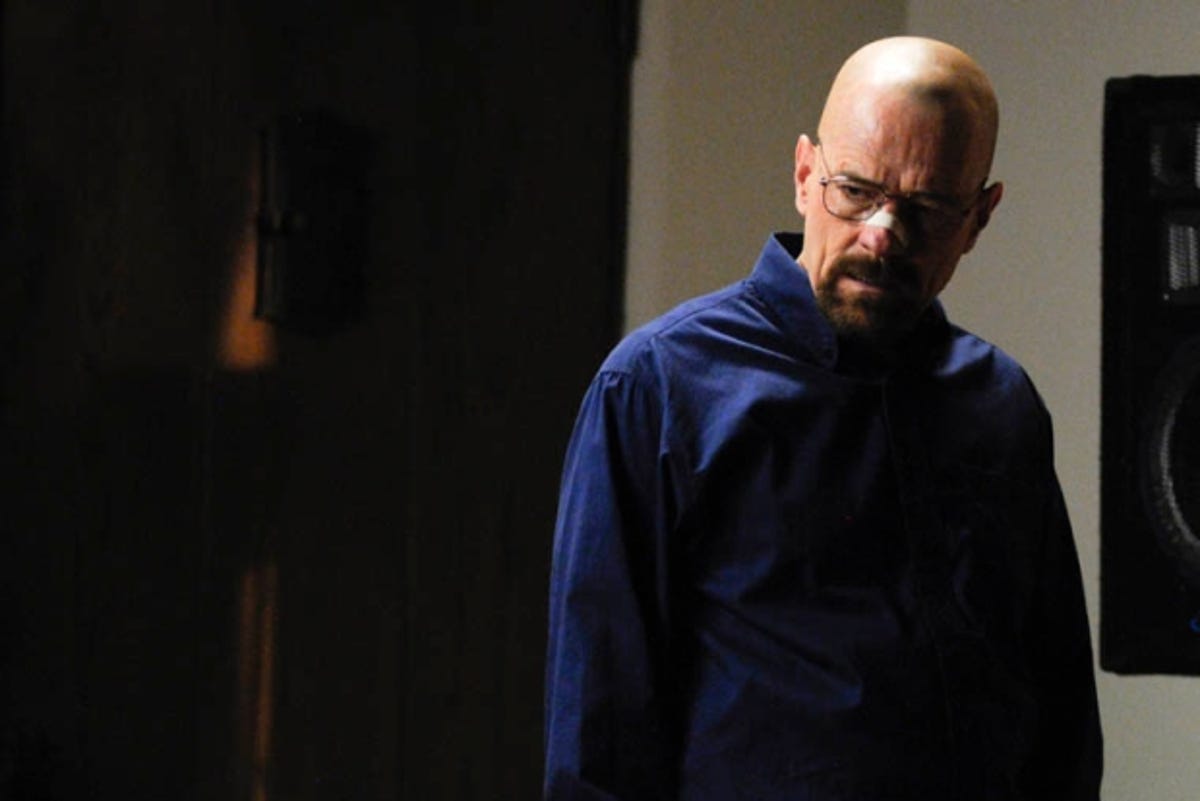
Is this a golden age of television? Is digital piracy unethical? What would it take to push someone over the edge, into a world of horrific violence?
These are the questions that keep us up at night. Thank goodness, then, that I had the chance to get a little face time with Bryan Cranston, star of TV masterpiece Breaking Bad, to set the above issues straight, and also to tell us what phone he uses.
Piracy, and streaming TV
Purloining TV shows and movies from the Internet is a hot topic. I ask Bryan how he, as a notable film and TV actor, feels about digital thievery. As it turns out, he has strong feelings.
“Well,” he begins, “I mean piracy is not good in any sense. You have artists hard at work and they need to be compensated for their work.
“I wouldn’t buy anything off the street,” Cranston continues, “music or otherwise, just out of principle. And not just because I can afford it, but because it’s the ethical thing to do.”
I ask about streaming services like Netflix or Hulu. Does Bryan think these are doing good things for the industry?
“I don’t know if I even have an opinion on that,” he begins. “I suppose what I’m in favour of, is if it opens up the avenues for more production, and that means more of my friends get jobs — writers, directors and actors — then I’m in favour.”
It’s pointed out to Cranston that Breaking Bad hasn’t been given much of a shot in the UK, at least on TV. Only the first two series were even broadcast here (on FX and 5USA respectively), with fans having to rely on services like iTunes or Netflix to get their viewing kicks.
Not exactly a fair shout for a programme this popular. But could that ‘underground’ vibe have played in the show’s favour?
“Maybe in some way,” Cranston muses, “that makes it more valuable. The level of expectations go up.
“You can advertise as much as you want, but the best form of advertising is word of mouth. When you tell your friend, ‘You should watch this show,’ then they watch it. If you see it on a billboard or something, it’s not as impactful as that first-hand ‘you’ve got to watch this show’.”
“In my day, everything was black and white…”
Breaking Bad has been a huge critical success, but it’s only one of a number of brilliant long-running dramas doing the rounds. Boardwalk Empire, Game of Thrones, Dexter, Sons of Anarchy, even concluded epics like The Wire and The Sopranos. — there’s no denying it’s an extraordinarily good time to be watching TV. Cranston thinks that’s down to anti-heroes.
“In my day, everything was black and white,” Cranston says. “You had a good guy and a bad guy. Yay good guy! Boo bad guy! And they never crossed over.
“Now it’s common, you see that, and expect it, and demand it,” he opines. “If you don’t see a leading character, a general protagonist, with some difficult issues that he or she is dealing with, it seems too simple, doesn’t it?
“We need to see that complexity now, and that’s why it’s a golden age of television.”
“Every single person has the capability of becoming dangerous”
In the seedy, narcotic-fuelled world of Breaking Bad, much of the suspense comes from seeing Cranston’s character way out of his depth, panicking and struggling to stay afloat. Nevertheless, there are points at which we see the resourceful Walt taking charge and asserting himself — something which normally results in the violent deaths of one or more characters.


I ask Cranston if Walter is really out of his depth, or whether the ruthless, violent man we occasionally glimpse is the real Mr White.
“What I’ve learned from playing Walter White,” Cranston explains, “and I honestly didn’t feel this before — is that every single person has the capability of becoming dangerous.”
On Walter White’s “perfect storm” of misfortune, Cranston says, “He was able to make a decision.
There’s a term that was used when I was a kid — seeing red. ‘Oh he saw red,’ or, ‘He broke bad’ — there are those terms when someone pops out of their normal rational way of thinking, and they go temporarily insane. And they’re capable of anything.”
To summon up the emotionally turbulent Walter White, and also to explain how he can see ordinary people being pushed to extraordinary lengths, I learn that Cranston draws on a particularly nightmarish experience from his past, involving a drug-addict ex-girlfriend he was terrified of, and whom he believed was capable of having him hurt or killed.
“She came over to my apartment one time and was pounding on my door,” Bryan explains. “I had this vision when I let her in, I took her in and I killed her. And it was clear. It was easy. Because I physically can do it, so why not?
“I called the police,” Cranston says. “That’s seeing red, that’s momentarily popping out of what your norm is, who you are. But that set of circumstances came in line, and I became dangerous. And I knew it, and fortunately I didn’t act upon it. But there are people who do, there are situations that we see all the time in the news, people who act upon their impulse, their temporarily insanity of impulse, and it’s incredibly unfortunate.”
The “courage of an actor”, Cranston says, “Is to be willing to go back into those uncomfortable emotions, and feel them again.”
Among other fascinating tidbits, I learn that Cranston was taught to cook crystal meth by US Drug Enforcement Agency chemists when Breaking Bad began. When it’s portrayed on the show, however, details are purposefully left out, or put in the wrong order. “We don’t want to make a how-to video,” Cranston — who also says he has a ‘mancrush’ on English actor Mark Rylance — explains.
Finally I tell Cranston that I work for a technology site, and ask what kind of phone he uses.
“I have an iPhone,” he says — perplexed by the question. “Is that interesting?”
Well, maybe not by your standards, Bryan.
- Breaking Bad Season 5 is available first only on Netflix UK from 1 November. Seasons 1-4 are available on DVD and Netflix UK now.




